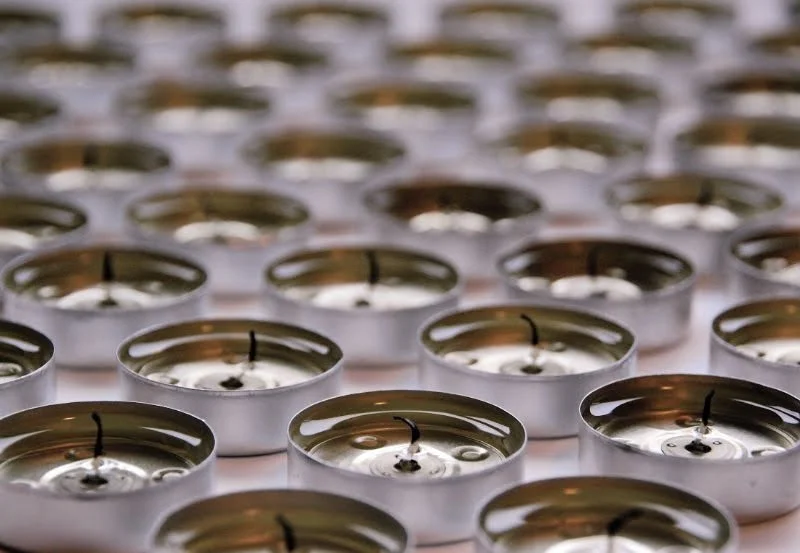Vegan candle making has gained popularity in recent years as more people choose to embrace a cruelty-free and sustainable lifestyle. One of the key components in creating vegan candles is the choice of wax. In this article, we will explore the different vegan waxes available for candle making, their unique qualities, and how they contribute to creating beautiful and eco-friendly candles.
When it comes to making vegan candles, there are various options for wax that cater to different preferences and needs. From soy wax to coconut wax, rapeseed wax, carnauba wax, candelilla wax, sunflower wax, and even blended vegan waxes, each type offers its own set of benefits and characteristics. Understanding these options is essential for anyone looking to create high-quality vegan candles.
As we delve deeper into the world of vegan waxes for candle making, we will uncover the versatility of soy wax, the sustainability of coconut wax, the effectiveness of rapeseed wax, the unique qualities of carnauba wax, the alternative properties of candelilla wax, and the power of sunflower wax. Furthermore, we will explore how blending different vegan waxes can lead to custom candle blends that meet specific preferences and requirements.
Whether you are a seasoned candle maker or just starting out on your journey, understanding vegan waxes is crucial in choosing the right one for your candle making needs.
Soy Wax
The Versatility of Soy Wax
Soy wax has risen in popularity within the candle making community due to its versatile nature. It is easily customizable, allowing for the addition of different fragrances and colors. This flexibility makes it an ideal choice for creating unique and personalized vegan candles.
The Popularity of Soy Wax
One of the reasons why soy wax has become a go-to choice for vegan candle makers is its widespread availability. It can be found in various forms, such as flakes or pellets, making it convenient to work with for both beginners and experienced candle makers. Additionally, soy wax is known for its clean burn, making it a preferred option for those who are environmentally conscious.
Sustainability of Soy Wax
Another key factor contributing to the popularity of soy wax is its sustainability. Soybeans are a renewable resource, making soy wax an eco-friendly choice for vegan candle enthusiasts. As consumer demand for sustainable products continues to grow, soy wax remains a top contender in the realm of vegan waxes for candle making. Overall, the numerous benefits and versatility make soy wax a staple ingredient in many vegan candle making workshops and businesses alike.
Coconut Wax
When it comes to vegan candle making, coconut wax has gained popularity as a sustainable and eco-friendly option. Derived from the meat of coconuts, this type of wax offers a clean and smooth burn, making it a top choice for many vegan candle enthusiasts. Not only does coconut wax have excellent scent throw and burn characteristics, but it also has environmental benefits that make it a standout choice in the world of vegan candle making.
Here are some key reasons why coconut wax is a sustainable and eco-friendly option for vegan candle makers:
- Sustainable Sourcing: Coconuts are readily available and renewable resources, making coconut wax a sustainable choice for eco-conscious candle makers.
- Clean Burn: Coconut wax burns cleanly, producing minimal soot and smoke compared to paraffin wax or other traditional waxes.
- Biodegradable: Since coconut wax is derived from natural sources, it is biodegradable, which means that it has minimal impact on the environment compared to petroleum-based waxes.
In addition to its sustainability and eco-friendliness, coconut wax also has excellent adhesion properties, allowing for enhanced fragrance retention and optimal burning performance in candles. With its versatility and positive environmental impact, coconut wax continues to be a popular choice for those seeking high-quality vegan candles.
Rapeseed Wax
When it comes to vegan candle making, there are a variety of wax options available to choose from. While soy and coconut waxes may be the most popular choices, rapeseed wax is a lesser-known but highly effective option for those looking to create eco-friendly and sustainable candles. Here are some reasons why rapeseed wax is worth considering for your next candle making project:
1. Renewable and Sustainable: Rapeseed wax is derived from the oil of the rapeseed plant, which is known for its high oil content. This makes it a renewable and sustainable option for vegan candle making, as the plant can be grown in abundance without causing harm to the environment.
2. Clean Burning: Like other vegan waxes, rapeseed wax is known for its clean burning properties. It produces minimal soot and smoke when burned, making it a healthier choice for both the environment and indoor air quality.
3. Scent Throw: One of the advantages of using rapeseed wax for candle making is its ability to hold and release fragrance effectively. This means that you can create beautifully scented candles using essential oils or fragrance oils without compromising on burn quality.
Overall, rapeseed wax offers a unique set of benefits that make it a standout choice for vegan candle makers who prioritize sustainability, clean burning, and strong scent throw in their products. Whether used alone or blended with other waxes, rapeseed wax has much to offer in the world of eco-friendly candle making.
Carnauba Wax
Benefits of Carnauba Wax
One of the main advantages of using carnauba wax in candle making is its natural luster and glossy finish. This gives candles a beautiful shine that can enhance their aesthetic appeal. Additionally, carnauba wax has a slow burn rate, making it ideal for creating long-lasting candles. Its ability to hold onto scents also makes it a great choice for scented candles.
Considerations When Using Carnauba Wax
While carnauba wax offers many benefits, there are some considerations to keep in mind when using it for candle making. Due to its high melting point, it can be challenging to work with compared to softer waxes like soy or coconut wax. It may require higher temperatures during the melting process, and careful monitoring to avoid overheating. Additionally, carnauba wax can be more expensive than other vegan waxes, so cost may be a factor for some candle makers.
Combining Carnauba Wax With Other Waxes
Many vegan candle makers choose to blend carnauba wax with other waxes to take advantage of its unique qualities while mitigating some of its challenges. Blending carnauba wax with soy or coconut wax can help improve its workability while still benefiting from its hardening and glossy properties. By experimenting with different ratios and combinations, candle makers can create custom blends that offer the best of both worlds in terms of texture, burn time, and scent retention.
Candelilla Wax
One of the notable benefits of candelilla wax is its high melting point, which makes it ideal for creating candles that can withstand warmer temperatures without melting or losing their shape. This characteristic sets candelilla wax apart from other plant-based waxes and makes it a popular choice for candles intended for outdoor use or in regions with hot climates. Additionally, candelilla wax has a smooth and glossy finish, providing candles with a professional and polished appearance.
In addition to its practical properties, candelilla wax also offers benefits for vegan candle makers in terms of sustainability and ethical production. The cultivation of candelilla shrubs requires minimal water and resources, making it an eco-friendly alternative to beeswax.
Furthermore, using candelilla wax supports local communities in Mexico and the southwestern United States where the shrubs are grown, contributing to sustainable economic development in these regions. Overall, candelilla wax presents a compelling option for vegan candle makers seeking an environmentally conscious and cruelty-free alternative to traditional beeswax.
Sunflower Wax
One of the key benefits of using sunflower wax for candle making is its renewable and biodegradable nature. Sunflowers are easily grown and harvested, making sunflower wax a more sustainable option compared to other types of waxes. In addition, sunflower wax has a lower melting point, which means it can create smooth and even burning candles without the risk of tunneling or uneven melting.
When compared to other vegan waxes like soy or coconut wax, sunflower wax offers a unique set of qualities that appeal to candle makers looking for something different. Its stability and consistency make it an ideal choice for creating intricate candle designs and shapes. Additionally, sunflower wax has excellent dye retention properties, allowing for vibrant and long-lasting colored candles.
In summary, sunflower wax provides a great alternative to traditional waxes for vegan candle making. Its sustainability, clean burning qualities, and versatility make it a worthy contender in the world of plant-based waxes for candle creation.
| Sunflower Wax Qualities | Benefits |
|---|---|
| Renewable and biodegradable | Sustainable option for candle making |
| Low melting point | Creates smooth and even burning candles |
| Excellent dye retention properties | Allows for vibrant and long-lasting colored candles |
Blended Vegan Waxes
When it comes to creating unique and custom candles, many vegan candle makers turn to blended waxes. Blending different vegan waxes for candle making allows for the creation of custom blends that can offer a combination of desirable qualities from each wax. By carefully mixing and matching various vegan waxes, candle makers can achieve the perfect balance of burn time, scent throw, and visual appeal in their candles.

One popular approach to blending vegan waxes is combining soy wax with other plant-based waxes such as coconut wax, rapeseed wax, or candelilla wax. Each of these waxes has its own distinct characteristics, and blending them can result in a final product that offers the best of both worlds. For example, combining soy wax with coconut wax can create a blend that has excellent scent throw and a smooth appearance.
Additionally, using blended vegan waxes can also allow candle makers to customize the melting point and hardness of their candles. For instance, blending rapeseed wax with candelilla wax may result in a candle with a higher melting point and better structural integrity. This versatility in creating custom blends makes blended vegan waxes an attractive option for those looking to tailor their candles to specific preferences or requirements.
Conclusion
In conclusion, there is a wide array of options available for those looking to make vegan candles. Whether you prefer the versatility of soy wax, the sustainability of coconut wax, or the unique benefits of carnauba wax, there is a perfect option out there for your candle making needs. It’s important to consider factors such as scent throw, burn time, and eco-friendliness when choosing the right vegan wax for your candles.
Additionally, experimenting with blended vegan waxes can open up even more possibilities in terms of creating custom candle blends that cater to specific preferences and requirements. By mixing different vegan waxes, candle makers can achieve their desired balance of softness, hardness, and fragrance retention in their handmade products.
Ultimately, with the variety of vegan wax options available on the market today, it’s easier than ever to create high-quality candles without relying on animal-derived ingredients. Whether you’re a seasoned candle maker or just getting started in this craft, exploring different vegan waxes for candle making can lead to exciting discoveries and truly unique creations.

Welcome to my candle making blog! In this blog, I will be sharing my tips and tricks for making candles. I will also be sharing some of my favorite recipes.





